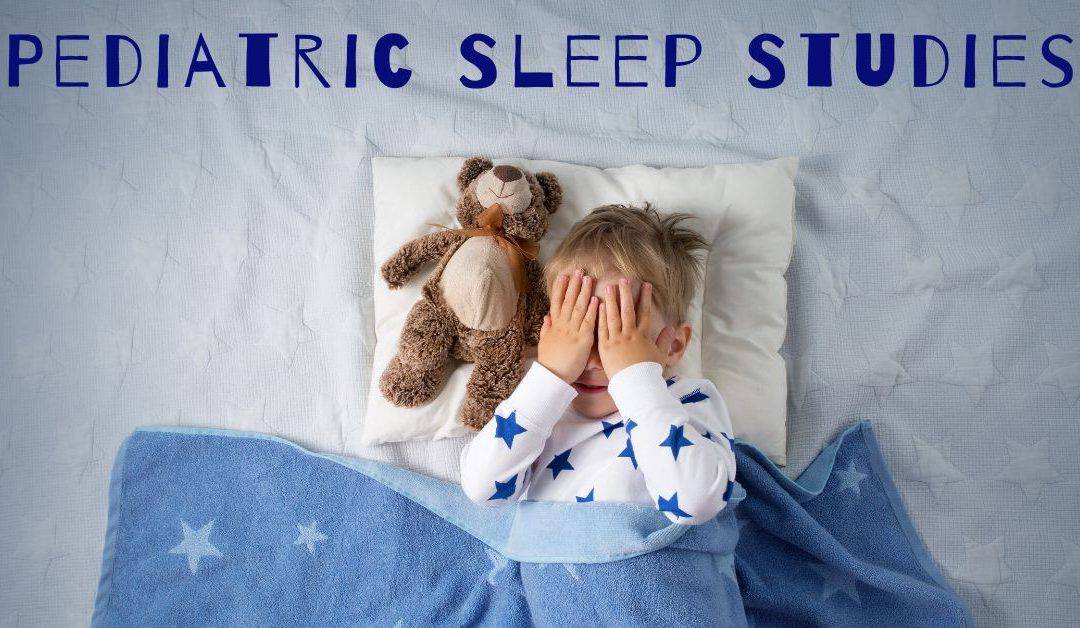A pediatric sleep study is a test to determine if a child has a sleep disorder. The study, also called polysomnography, is usually performed in a hospital or a sleep lab, but sometimes can be done at home. If the sleep study is done in a clinic, your child will stay overnight in a room that is designed to look like a bedroom.
A pediatric sleep study is painless, but it can be a little frightening for children at first, since they will be hooked up to various wires and possibly a breathing mask. Things that are measured may include heart rate, breathing rate, oxygen in the blood, eye movements, brain waves and muscle activity.
Why are pediatric sleep studies performed?
Pediatric sleep studies can be used to diagnose several conditions. In children, a pediatric sleep study is usually performed to detect sleep abnormalities such as sleep terrors, sleepwalking, and sleep-related eating disorder. It can also be used to detect sleep-related epilepsy, sleep apnea, or abnormalities that occur during REM sleep.
Sleep is important for healthy growth and development
Sleep is important in people of all ages, but it is particularly important in children. Healthy sleep promotes kids’ growth. Indeed, the body releases growth hormone during certain times during sleep. If sleep is disrupted, there is less growth hormone released, and less growth. Children who do not get enough high-quality sleep are smaller and have less muscle than children who get good sleep. Children who do not get adequate sleep tend to be overweight—they add fat rather than muscle. Poor sleep leads to obesity, but obesity leads to obstructive sleep apnea, which can also cause poor sleep.
Sleep enhances attention
There is a strong relationship between sleep and attention. People who do not get adequate sleep have poor attention the next day—this is something we have all experienced. However, children who do not get enough high quality sleep are more likely to develop attention deficit hyperactivity disorder (ADHD). They are more likely to be impulsive and hyperactive, as well.
Sleep and school performance go hand in hand
Poor sleep is associated with poor performance in school and behavioral problems. Children who do not get enough sleep are sleepy during the day and do not perform well in school. On the other hand, kids that get good sleep do very well in school and in extracurricular activities.
How to ensure your child gets good sleep
Encourage exercise
Kids who get plenty of cardiovascular exercise are more physically fit, expend their energy during the day and sleep better at night. They are ready to sleep at the appropriate time and tend to spend an appropriate time sleeping. Moreover, exercise can reduce the risk of obesity.
Encourage healthy eating, but not before bed
Hunger can interfere with good sleep. Make sure kids have plenty of nutritious food available. However, make sure they get their eating in at least two hours before bedtime. Avoid sugary snacks at night, too.
Remove distractions from the bedroom
The bedroom should be a place for sleep, not play. Use parental controls to make sure kids aren’t able to use screens before bedtime. The light from screens can be activating and can prevent kids from getting to sleep on time. Over time, kids will associate the bedroom with sleep, and so when it is time to sleep, they will be ready.
Consider a sleep study
If your child is having substantial difficulty sleeping, it could be because they have a sleep disorder. Poor school performance, daytime sleepiness, and behavioral problems could be caused by a lack of good sleep. If your child is experience one or more of these things, talk to your doctor to find out if a pediatric sleep study is needed. Sleep disorders don’t go away on their own; they often require specific treatment.

